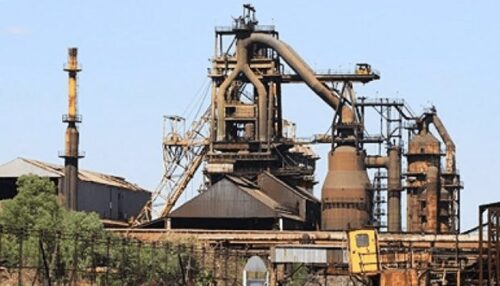The Joint Committee on Steel Development at Nigeria’s National Assembly has raised serious concerns regarding financial discrepancies within the Ministry of Steel Development’s 2024 budget. During the ministry’s defense of its proposed 2025 budget, lawmakers flagged several irregularities, including questionable allocations for “capacity-building programs” and “skills training initiatives” that lacked proper documentation or evidence of execution.
Zainab Gimba, the committee’s co-chairperson, expressed apprehension that these budgetary provisions might be “ghost projects” designed to siphon public funds. She pointed out that a thorough assessment of the 2024 budget revealed instances of financial mismanagement, with funds allocated to initiatives that had no clear records of implementation.
“There has been a significant rise in administrative and recurrent expenses without tangible improvements in the ministry’s performance. This raises concerns about the possible misallocation of resources,” Gimba stated.
Additionally, she highlighted that several projects, particularly those linked to the Ajaokuta Steel Plant, failed to comply with the Fiscal Responsibility Act, which mandates prudent management of public funds. The committee also found violations of procurement regulations, including cases of non-competitive bidding and inflated contract values.

To address these concerns, Gimba recommended an independent forensic audit to scrutinize the ministry’s expenditures and contracts for 2024, ensuring compliance with Nigeria’s financial regulations.
Concerns Over 2025 Budget Allocation
Addressing the proposed 2025 budget, Gimba criticized the allocation pattern, which dedicates 57.2% of funds to personnel expenses, leaving only 34.6% for capital projects. She argued that such an imbalance could hinder efforts to modernize the steel sector and drive industrial growth.
“The absence of clear plans for strategic investments, feasibility studies, and infrastructure improvements is a major shortfall in the ministry’s budget proposal,” she noted.
Committee Chairman Patrick Ndubueze echoed these sentiments, emphasizing the critical role of a functional steel industry in Nigeria’s industrialization agenda. “Without a strong steel sector, our country cannot advance. We must focus on capital investments rather than recurrent expenditures,” he asserted.
Debate Over Ajaokuta Steel Plant Audit
Lawmakers also questioned the necessity of conducting a new technical audit for the Ajaokuta Steel Plant, given that three previous reports on the facility had already been completed. They demanded explanations on why existing findings had not been acted upon instead of commissioning a fresh review.
Responding to the concerns, Steel Development Minister Abubakar Audu defended the decision, arguing that the previous audit reports, conducted over a decade ago by different companies, were outdated and did not align with current realities. He explained that the Federal Government signed a Memorandum of Understanding (MoU) with Russian firms in October 2023 for the completion of Ajaokuta Steel and the National Iron Ore Mining Company (NIOMCO) in Kogi State.
Audu stated that the Russian consortium, in collaboration with Nigerian engineers, would conduct a comprehensive audit before presenting the findings to the Federal Executive Council (FEC) for approval. He estimated that approximately $2 billion (about N3.7 trillion) would be required to revive the steel plant, far exceeding the ministry’s 2024 budget of N24 billion.
However, lawmakers expressed skepticism over the estimated cost, questioning how the figure was determined without a completed audit. Senator Natasha Akpoti-Uduaghan asked, “If the audit is yet to be conducted, how did you arrive at the $2 billion estimate? Why not implement existing audit reports instead of commissioning a new one?”
Audu reassured lawmakers that while the older reports would serve as a reference, a fresh audit was necessary to align with evolving technical and financial realities. He affirmed that the government remains committed to reviving the steel sector and will address concerns raised regarding budget transparency and project implementation.


